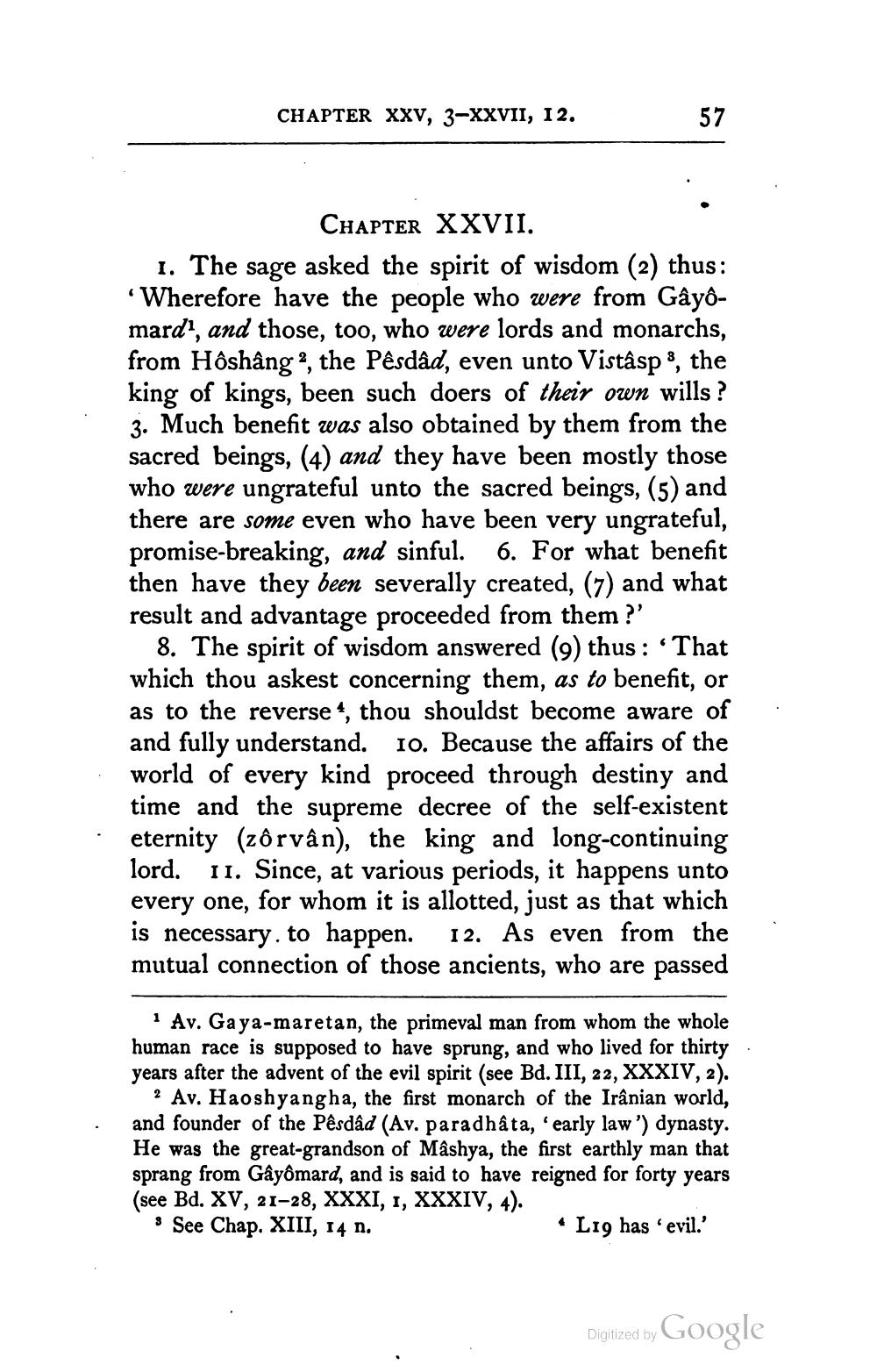________________
CHAPTER XXV, 3-XXVII, 12.
57
CHAPTER XXVII. 1. The sage asked the spirit of wisdom (2) thus: Wherefore have the people who were from Gâyômard", and those, too, who were lords and monarchs, from Hôshầng 2, the Pêsdâd, even unto Vistâsp 3, the king of kings, been such doers of their own wills ? 3. Much benefit was also obtained by them from the sacred beings, (4) and they have been mostly those who were ungrateful unto the sacred beings, (5) and there are some even who have been very ungrateful, promise-breaking, and sinful. 6. For what benefit then have they been severally created, (7) and what result and advantage proceeded from them ?'
8. The spirit of wisdom answered (9) thus: That which thou askest concerning them, as to benefit, or as to the reverse 4, thou shouldst become aware of and fully understand. 10. Because the affairs of the world of every kind proceed through destiny and time and the supreme decree of the self-existent eternity (zôrvân), the king and long-continuing lord. 11. Since, at various periods, it happens unto every one, for whom it is allotted, just as that which is necessary. to happen. 12. As even from the mutual connection of those ancients, who are passed
Av. Gaya-maretan, the primeval man from whom the whole human race is supposed to have sprung, and who lived for thirty years after the advent of the evil spirit (see Bd. III, 22, XXXIV, 2).
2 Av. Haoshyangha, the first monarch of the Iranian world, and founder of the Pêsdad (Av. paradhâta, early law ') dynasty. He was the great-grandson of Mâshya, the first earthly man that sprang from Gâyömard, and is said to have reigned for forty years (see Bd. XV, 21–28, XXXI, 1, XXXIV, 4). • See Chap. XIII, 14 n.
• L19 has evil.'
Digitized by Google




